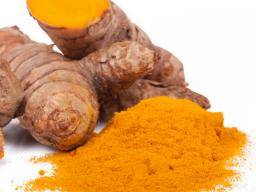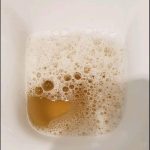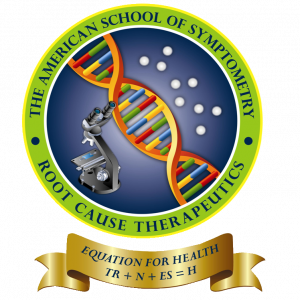
Dr. Maxwell Nartey
Professor of Symptometric Science, American School of Symptometry, NFP
World Center for Health Education and Scientific Enlightenment
Turmeric is well known for mitigating pain and inflammation. Incidentally, it is the herbalist’s excellent replacement for analgesics aka pharmaceutical painkillers. Unfortunately, there is a lot about turmeric that people do not know. Now is the time to share a few highlights from symptometric research.
Turmeric is excellent for causing the kind of cell neglect that makes the kidneys and cartilage deteriorate. How? It does not allow the cells to produce endorphin, enkephalin, and substance P to prevent or stop the pain. Also, it does not allow the adrenal cortex to produce cortisol to prevent or stop inflammation. Finally, it does not allow the liver to produce somatomedin.
What turmeric does is, it mediates the pain or the inflammation directly, thereby allowing cell neglect to continue. This is also what pharmaceutical drugs do.
The term alternative medicine stems from the fact that an herbal product is used to achieve the objective that a pharmaceutical drug would have achieved with the difference that the person will not have the drug’s side effects.
The problem is that in the long run, both alternative medicine and allopathic medicine do the body some harm by causing cell neglect.
I have many examples to illustrate my point but because time and space will not allow me to discuss all my examples, I will only pick a few starting with kidney disease.
Kidney disease
Why are so many turmeric users and other herb users suffering from chronic kidney disease or are on dialysis because of renal failure? Here is the answer.
They took turmeric capsules to mitigate lower back pain, pain in the lumbar region, pain in the coccyx aka tailbone, etc. Little did they know that these were the reflective symptoms of kidney disease. Instead of hydrolyzing or ionizing the gouty deposits, lithiasis, sand, gravel, calculi, etc. that were causing the inflammation of their kidneys, they kept taking turmeric for years. Now, it is too late to reverse nephritis.
Before their kidneys finally deteriorated, there were many anomalies in their urine. Urinalysis has been revealing red flags such as elevated levels of albumin, creatinine, phosphates, protein, etc. but they did not bother to reverse these anomalies.
Also, their urine was releasing fish odor or ammonia, but because they were taking turmeric, it did not occur to them that they were causing kidney neglect with devastating consequences.
People are being diagnosed with chronic kidney disease or renal failure, and they do not know why. Now is the time for them to know why.
Urethritis
Urethritis is the inflammation of the urethra. If the urethra is inflamed, the person will feel a burning sensation when they are urinating.
Urinalysis will show epithelial cells and some bacteria in the urine. As a result, the person will be diagnosed with UTI (urinary tract infection). Then, they will be given a prescription for antibiotics unbeknownst to them that urethritis could reflect nephritis. The factors that cause the inflammation of the nephrons (nephritis) are the same factors that cause urethritis.
Antibiotics that physicians prescribe will never remove the underlying cause of UTI or urethritis.
High blood pressure
People have been led to believe that it is eating salt that causes hypertension. This is flat wrong. If eating salt causes hypertension, all the 8.5 billion inhabitants of planet earth would have had hypertension, but this is not the case.
Also, people have been led to believe that stressful situations raise blood pressure. This is true, but here is what people were never told. After the stressful situation has been resolved, blood pressure will be normal again. It does not remain elevated for months and years.
Do you really want to know what causes hypertension? Here is the fact.
It is the non-production of renin that makes a person susceptible to hypertension. What is renin? Renin is the proteolytic enzyme that the kidneys produce to speed up the production of angiotensin. Then, it is angiotensin that will significantly reduce the tension in the arteries, arterioles, and circumferential muscle fibers so that blood pressure can be normalized.
Therefore, it is the constant production of renin that prevents a person from getting hypertension. Kidneys that are inflamed or jammed may stop producing renin.
Infections such as rheumatic fever, diphtheria, malaria, and typhoid that occurred decades ago can damage the kidney cells that produce renin. Also, poisons can damage the kidney cells that produce renin. This is why it is important to interpret symptoms correctly, and call Symptometry for assistance.
There are three ways to know that the kidneys need some attention: 1) lower back pain 2) pain on the side and 3) anomalies in the urine. Why ignore the plight of the kidneys by taking turmeric?
There is absolutely no evidence showing that hypertension is hereditary. Every person who neglects their kidneys will end up suffering from hypertension or hypotension.
People who suffer from hypotension think they are healthy. No, they are not. It is physicians who fail to diagnose hypotension as a symptom of kidney disease.
How does a person enhance the health of their kidneys? This is not done by eating food, and it is not done by drinking a lot of water and taking dietary supplements. Hydrolysis has always been one of the best solutions and Symptometry provides it.
It is true that certain foods would weaken our kidneys, but these foods must be known for what they truly are. To know what these foods are, symptometric science must be studied at the American School of Symptometry, NFP.
Cartilage deterioration
There must be cartilage in every joint. However, the liver must first produce somatomedin so that the fibroblasts can use it to produce fresh cartilage and elastin. It is fresh cartilage that will replace old cartilage in the knee joints, hip joints, elbow joints, ankle joints, jaw joints, finger joints, toe joints, wrist joints, spinal cord, etc.
If old cartilage that is supposed to be replaced is not replaced, the person will start to experience articular crepitus (crackling in the joints), joint stiffness, a weak joint that dislocates or sprains easily, joint pain, deformed joint, or swollen joint.
Physicians would quickly diagnose joint pain as arthritis, rheumatoid arthritis, or osteoarthritis when the real problem is the non-production of somatomedin to facilitate the replacement of old cartilage with new cartilage.
To herb enthusiasts, the diagnosis of arthritis calls immediately for turmeric. Not so fast this time. Turmeric would mitigate the pain or the inflammation while allowing old cartilage to remain in place.
Natural law states that the new must replace the old, the strong must replace the weak, and the normal must replace the abnormal. Therefore, by keeping old and weak cartilage in place, the person is violating natural law. The punishment for violating natural law is pain, stiffness, inflammation, infections, ulcers, etc.
To recap, a joint problem is a liver problem. Now, what about paralysis?
Paralysis
It is the non-production of fresh cartilage for the knee joints, the spinal cord, the hip joints, and the ankle joints that ends up causing paraplegia, locomotor ataxia, or complete loss of mobility.
Also, it is the non-production of fresh cartilage for the wrist that causes a deformed wrist or carpal tunnel syndrome, and the non-production of cartilage for the ankles that causes deformed ankles, or easy spraining of the ankle.
Therefore, taking turmeric to mitigate ankle pain, knee pain, hip pain, etc. would lead to continued loss of cartilage. This is because the needs of the liver have not been satisfied.
People who are bedridden or wheelchair-bound wonder why. They should stop wondering. They never ionized and nourished the segment of their liver that produces somatomedin. It is better to know the underlying cause of the health concern and start taking remedial action than to just blame the disability on destiny and continue to consume turmeric.
Chromatographic analysis
Chromatographic analysis of turmeric reveals the presence of curcumin (C21 H20 O6). Per the botanical database, curcumin is plant cortisol.
What is plant cortisol doing in a human being? Plant cortisol is for the plant. It is not for humans. Humans are not plants and plants are not humans. Humans have blood and plants have sap circulating nutrients and resources in their cells and systems. Additionally, humans have human DNA, and plants have plant DNA. Finally, plants are stationary biological existences, and humans are mobile.
Plants have learned to produce their essentials; we must also learn to produce ours.
If a person does not produce human cortisol, plant cortisol will mimic human cortisol only up to a point before it disintegrates. It is the mimicking process that allows turmeric to mitigate pain or inflammation for a day or two. This is complete symptom treatment.
These are the verifiable facts about turmeric that herbalists and their patrons never had. Thanks to symptometric science, they now have them.
Cystitis
Cystitis is the inflammation of the bladder with pain, and sometimes infection.
Those who receive a prescription for antibiotics to treat cystitis would be sorely disappointed. Why? The answer is, the antibiotics would target the wrong culprit, thereby allowing bladder deterioration to continue for many more years. There will be bladder stones, calculi, lithiasis, etc. in such a neglected bladder.
After many years of bladder neglect and urethral neglect, the urethra would be glued shut. As a result, the person would not be able to urinate again. Such individuals will be catheterized.
Catheterization will cause repeated infections. Repeated infections will cause septicemia (blood poisoning). Eventually, septicemia will kill the person.
Why are so many people having hip replacement surgery, knee replacement surgery, shoulder surgery, etc.? The answer is they are not aware that they have been suffering from the consequences of liver neglect for decades. Also, they are not aware that they are in violation of natural law.
A joint problem is a liver problem. Therefore, it is totally wrong to focus treatment on the joint that is stiff or hurting with pharmaceutical drugs, or an herb, especially turmeric.
Inflammatory diseases
Inflammatory diseases include hepatitis, keratitis, iritis, ovaritis, metritis, phlebitis, nephritis, mastitis, myocarditis, endocarditis, pericarditis, osteitis, peritonitis, meningitis, encephalitis, vaginitis, tonsilitis, stomatitis, colitis, and dermatitis to name only a few.
Can turmeric cure any of them? No. All it can do is assuage the symptom.
Symptometry teaches that the source of the disease or discomfort must be known. Then, it must be removed so that the cells of the liver, kidneys, or adrenal gland, are given the right well-combined resources and nutrients. It is with these nutrients and resources that specific cells will produce human cortisol, enkephalin, substance P, and endorphin to stop or prevent pain and inflammation.
The keywords are” stop” and “prevent”, not mitigate or mimic. Take note of this difference.
Cooking with turmeric only adds flavor to the soup or stew. Nothing else.
People have been lied to about turmeric for thousands of years. Now is the time for the total truth to be told about turmeric so that people are not taken for a ride again.
© Copyright 2022, The American School of Symptometry, NFP. No part of this publication may be reproduced or transmitted in any form or by any means, electronic or mechanical, including photocopying, recording, or by any information storage and retrieval system without the written permission of The American School of Symptometry, NFP. Library of Congress copyright number Txu 1-621-370, Washington D.C.


 Previous Post
Previous Post Next Post
Next Post